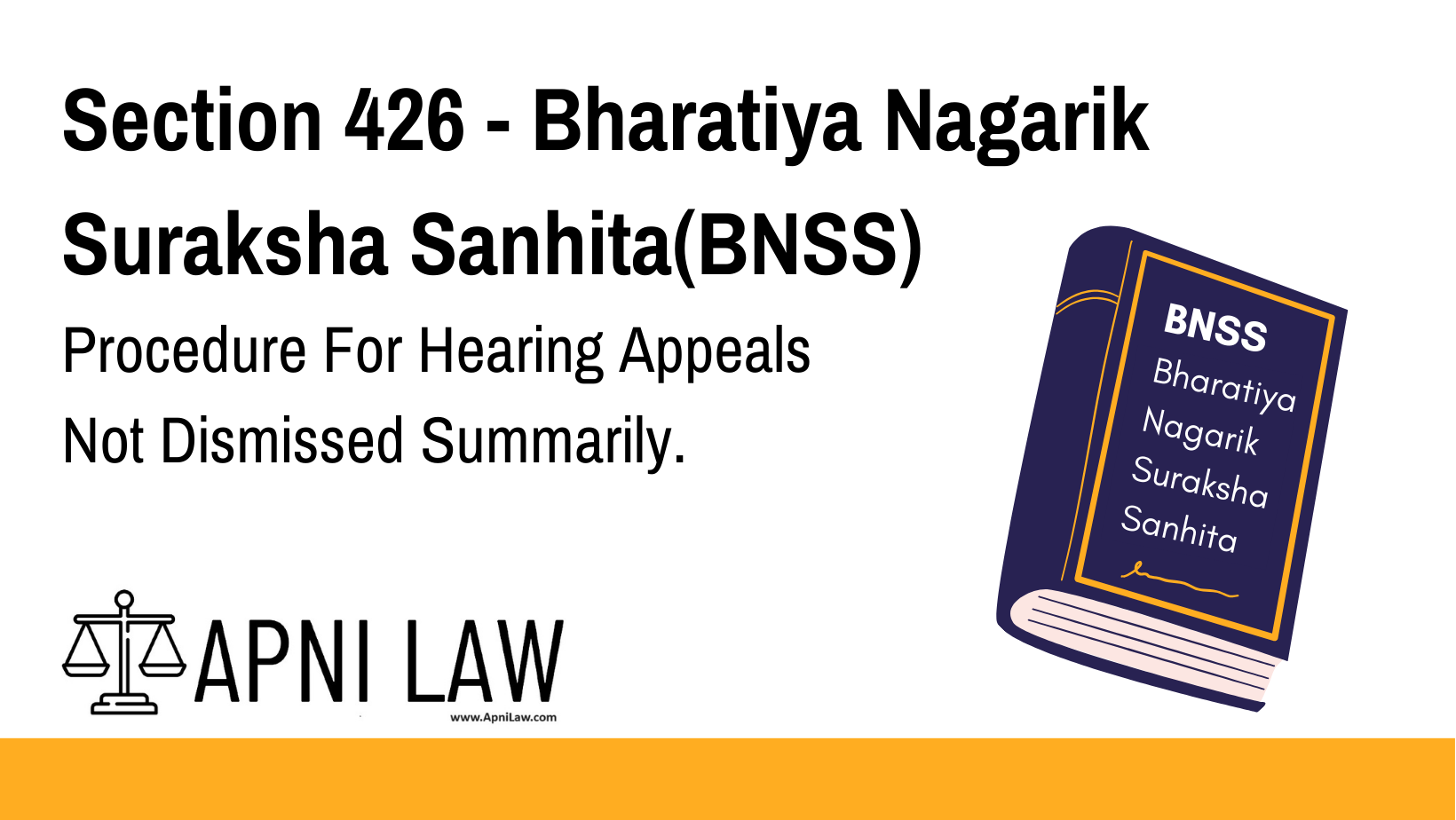Code Section 426
(1) If the Appellate Court does not dismiss the appeal summarily, it shall cause notice of the time and place at which such appeal will be heard to be given—
- (i) to the appellant or his advocate;
- (ii) to such officer as the State Government may appoint in this behalf;
- (iii) if the appeal is from a judgment of conviction in a case instituted upon complaint, to the complainant;
- (iv) if the appeal is under Section 418 BNSS or Section 419 BNSS, to the accused, and shall also furnish such officer, complainant, and accused with a copy of the grounds of appeal.
(2) The Appellate Court shall then send for the record of the case, if such record is not already available in that Court, and hear the parties:
- Provided that if the appeal is only as to the extent or the legality of the sentence, the Court may dispose of the appeal without sending for the record.
(3) Where the only ground for appeal from a conviction is the alleged severity of the sentence, the appellant shall not, except with the leave of the Court, urge or be heard in support of any other ground.
Explanation of Section 426 BNSS
Section 426 BNSS outlines the procedure for hearing appeals that are not dismissed at the initial stage. This section ensures fair representation of all parties in the appeal process.
Key Provisions of Section 426 BNSS
- Notice to All Concerned Parties:
- The appellate court must inform the appellant, their advocate, government-appointed officers, and relevant parties about the appeal hearing.
- Calling for Case Records:
- The court must obtain the case file unless the appeal only challenges the extent or legality of the sentence.
- Limitations on Raising Additional Arguments:
- If the only reason for appeal is that the sentence is too severe, the appellant cannot introduce new arguments without court approval.
Illustration
Example 1: Appeal in a Complaint Case
A person convicted under Section 354 BNSS (Assault on a Woman) files an appeal, claiming they were wrongly convicted based on false allegations.
- The complainant must be informed about the hearing.
- The case records are sent for review.
- Both parties present arguments before the appellate court decides.
Example 2: Appeal Only on Sentence Severity
A person convicted under Section 325 BNSS (Grievous Hurt) receives 7 years of imprisonment and appeals to reduce the sentence.
- Since the only ground for appeal is sentence severity, the appellant cannot introduce new arguments unless the court allows it.
- The appellate court may decide the case without calling for the entire record.
Common Questions and Answers on Section 426 BNSS
1. What happens if the appeal is not dismissed summarily?
The appellate court notifies all relevant parties and sets a date for a hearing.
2. Can an appellant raise new arguments after filing the appeal?
No, unless the court specifically allows it. This restriction applies when the only appeal ground is the severity of the sentence.
3. Is case record submission always required in appeals?
No. If the appeal concerns only the legality or extent of the sentence, the appellate court may decide without sending for the record.
4. What if a complainant is not informed of the appeal hearing?
Failure to notify the complainant in cases initiated by complaint may result in procedural irregularities that could invalidate the appellate proceedings.
Conclusion
Section 426 BNSS ensures that all necessary parties are informed about an appeal hearing and lays down rules for case record submission and argument limitations. This section balances judicial efficiency with fair trial rights.
For more legal insights, visit ApniLaw! 🚀








